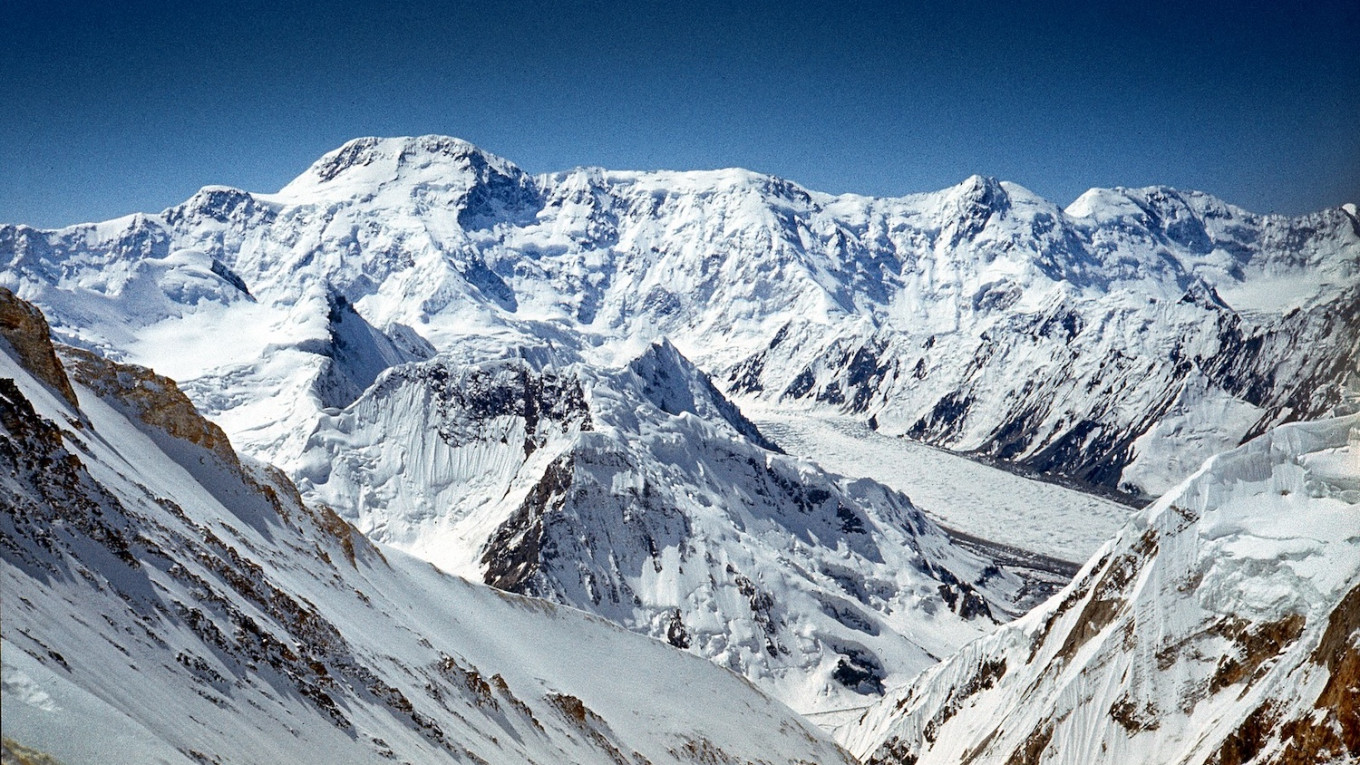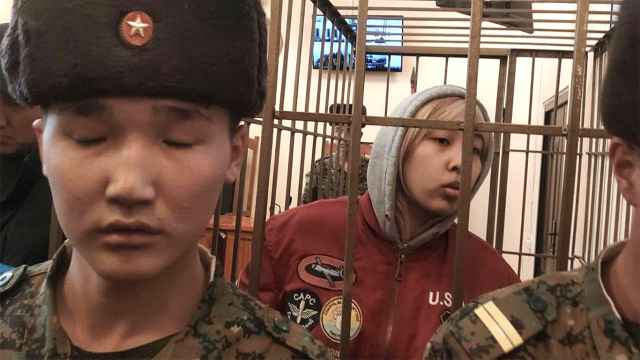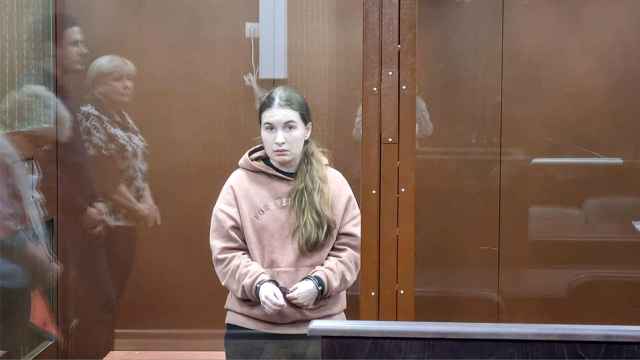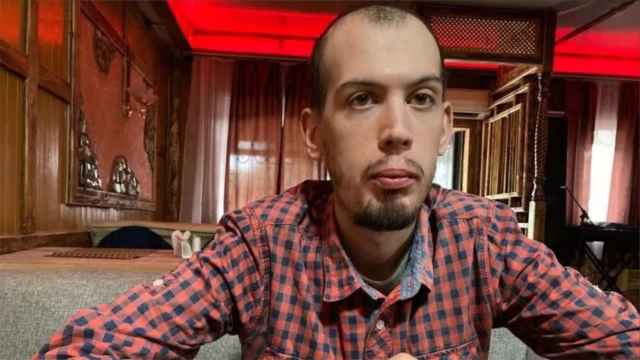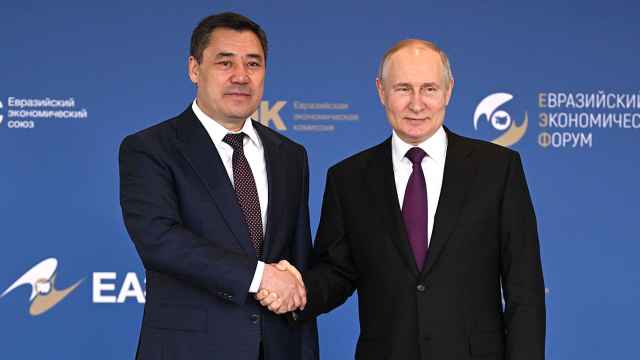A search for a Russian climber stranded on Kyrgyzstan's highest mountain has been suspended indefinitely due to severe weather conditions, the Central Asian country's authorities said on Saturday.
Natalia Nagovitsyna broke her leg while climbing the 7,439-meter Victory Peak while at an altitude of around 7,000 meters and has been stranded in the mountains for 11 days.
An Italian climber, Luca Sinigaglia, died on Aug. 15 trying to save her.
Italian rescuers went to the scene to try to recover his body using a helicopter, according to the Italian Foreign Ministry.
The operation launched to rescue Nagovitsyna, who turned 48 on Aug. 20, according to Russian media, has so far been unsuccessful.
A rescue helicopter crashed in the mountains and a group of climbers had to stop their ascent when their leader became seriously ill, according to Kyrgyz authorities.
On Saturday, "weather conditions deteriorated sharply, so all rescue operations have been suspended," the spokesman for the Kyrgyz Emergency Situations Ministry, Adil Chargynov, told Russian news agency RIA Novosti.
Temperatures are currently hovering around minus 30 degrees Celsius at night at the summit of Victory Peak, accompanied by gusts of wind and snowstorms, according to a source at the ministry quoted by Russian news agency TASS.
According to Chargynov, "all climbers, all experts share the view that she is unfortunately no longer alive."
"We know where she is. But it's impossible to get there," Dmitry Grekov, head of the Victory Peak base camp, told TASS.
According to him, "no one has ever been evacuated" from such an altitude on the mountain.
"It's impossible to do it manually, only by helicopter, and we don't have such helicopters in Kyrgyzstan," said Grekov.
Nagovitsyna's husband Sergei died of a stroke in 2021 while climbing 7,010-meter Khan Tengri, the highest peak in Kazakhstan, also in Central Asia, Russian media reported.
A Message from The Moscow Times:
Dear readers,
We are facing unprecedented challenges. Russia's Prosecutor General's Office has designated The Moscow Times as an "undesirable" organization, criminalizing our work and putting our staff at risk of prosecution. This follows our earlier unjust labeling as a "foreign agent."
These actions are direct attempts to silence independent journalism in Russia. The authorities claim our work "discredits the decisions of the Russian leadership." We see things differently: we strive to provide accurate, unbiased reporting on Russia.
We, the journalists of The Moscow Times, refuse to be silenced. But to continue our work, we need your help.
Your support, no matter how small, makes a world of difference. If you can, please support us monthly starting from just $2. It's quick to set up, and every contribution makes a significant impact.
By supporting The Moscow Times, you're defending open, independent journalism in the face of repression. Thank you for standing with us.
Remind me later.


